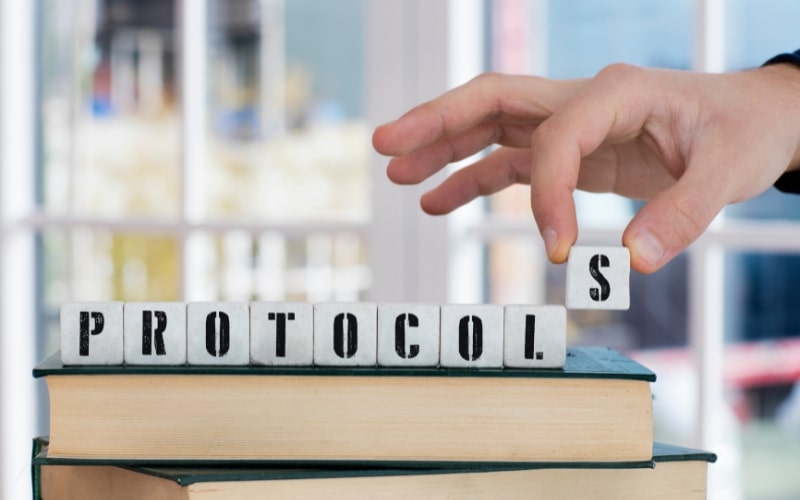Hiring the right process engineer is crucial for ensuring the efficiency and safety of industrial operations. Essential Process Engineer Interview Questions help identify candidates with the necessary technical skills, problem-solving abilities, and cultural fit. These questions provide insights into a candidate’s experience, approach to challenges, adherence to industry standards, ability to communicate and collaborate, and commitment to continuous learning. By asking the right questions, employers can ensure they select candidates who will significantly contribute to their organization’s success and maintain high standards of operational excellence.
The Importance of Effective Interview Questions

Hiring the right process engineer is a critical step for any organization aiming to optimize operations and maintain high standards of efficiency and safety. The role of a process engineer is multifaceted, requiring a blend of technical expertise, problem-solving skills, and the ability to communicate effectively within a team. Therefore, conducting a thorough and well-structured interview is essential to identify candidates who not only possess the necessary technical skills but also fit well within the company’s culture and can contribute to achieving its strategic goals.
The interview process serves as a crucial filter to ensure that only the most suitable candidates move forward. This importance is magnified in technical fields like process engineering, where the complexity of tasks and the potential impact on the organization’s operations demand a high level of competence and reliability from new hires. Effective interview questions are the key to uncovering these qualities in candidates.
Firstly, technical expertise is paramount. A process engineer must be adept at using various process simulation software tools, understand the intricacies of process design, and be capable of implementing improvements efficiently. Asking candidates to describe their experience with specific tools and how these have benefited their projects provides insight into their hands-on skills and practical knowledge. For example, a question like, “Can you describe your experience with process simulation software? Which tools have you used, and how have they benefited your projects?” helps assess whether the candidate has the requisite technical background and how effectively they have applied their skills in real-world scenarios.
Problem-solving skills are another critical area. Process engineers often face complex challenges that require innovative solutions. Questions that prompt candidates to explain past projects, particularly those involving significant hurdles, can reveal their problem-solving approach and creativity. For instance, asking, “Explain a complex process improvement project you have worked on. What was the problem, and how did you solve it?” allows interviewers to gauge a candidate’s analytical abilities and their effectiveness in delivering practical solutions.
Safety and adherence to industry standards are non-negotiable aspects of process engineering. It is essential to assess a candidate’s commitment to maintaining high safety standards and staying updated with industry regulations. Questions like, “What safety protocols do you follow when designing a new process?” and “How do you stay updated with industry standards and regulations?” are designed to ensure that candidates prioritize safety and regulatory compliance, which are crucial for preventing accidents and ensuring smooth operations.
Communication and teamwork are also vital. Process engineers often need to explain complex technical concepts to non-technical team members and collaborate closely with diverse teams. Questions that explore their ability to communicate effectively and work well within a team context are crucial. For example, “Describe a time when you had to explain a complex process to a non-technical team member. How did you ensure they understood?” helps determine the candidate’s communication skills, while “Can you provide an example of a successful project where you worked closely with a multidisciplinary team?” assesses their collaboration abilities.
Lastly, adaptability and a commitment to continuous learning are essential traits in a dynamic field like process engineering. Candidates should demonstrate their ability to handle unexpected challenges and their proactive approach to professional development. Questions such as, “How do you handle unexpected changes or challenges during a project?” and “What steps do you take to continuously improve your skills and stay current with technological advancements?” provide insights into a candidate’s flexibility and dedication to growth.
In conclusion, well-crafted interview questions are indispensable tools for identifying the best candidates for process engineering roles. By focusing on technical expertise, problem-solving skills, safety and regulatory knowledge, communication and teamwork abilities, and adaptability, interviewers can ensure they select candidates who will significantly contribute to the success and efficiency of their operations. JRG Partners specializes in designing comprehensive interview processes that help organizations identify and hire top talent in process engineering.
Technical Expertise and Problem-Solving Skills

When interviewing candidates for process engineering roles, assessing their technical expertise and problem-solving skills is paramount. These attributes are essential for ensuring that candidates can handle the complex and technical aspects of process engineering, as well as navigate and resolve the inevitable challenges that arise. Here are three crucial questions designed to delve into these areas, along with insights into what interviewers should look for in the responses.
Question 1: Can you describe your experience with process simulation software? Which tools have you used, and how have they benefited your projects?
This question aims to evaluate the candidate’s familiarity with and proficiency in using process simulation software, which is a cornerstone of process engineering. Simulation tools are vital for designing, testing, and optimizing processes before they are implemented in the real world. A candidate’s ability to effectively use these tools can significantly impact the efficiency and success of engineering projects.
What to Look For:
- Variety of Tools: The candidate should mention a range of simulation software they have used, such as Aspen HYSYS, MATLAB, Simulink, or CHEMCAD. This demonstrates a broad and adaptable skill set.
- Specific Projects: Look for specific examples where these tools were applied. The candidate should explain the context of the projects and how the software helped achieve the desired outcomes.
- Benefits Realized: It’s important that the candidate articulates the tangible benefits gained from using these tools, such as increased efficiency, cost savings, or improved accuracy in process design.
Question 2: Explain a complex process improvement project you have worked on. What was the problem, and how did you solve it?
This question is designed to assess the candidate’s problem-solving abilities, which are critical in process engineering. Engineers often encounter complex problems that require innovative and effective solutions. Understanding how a candidate approaches and resolves such issues provides valuable insight into their analytical skills and practical experience.
What to Look For:
- Clear Problem Statement: The candidate should clearly define the problem they faced. This indicates their ability to identify and articulate challenges accurately.
- Methodical Approach: Look for a structured approach to problem-solving. The candidate should describe the steps they took to analyze the problem, explore potential solutions, and implement the most effective one.
- Results Achieved: The candidate should discuss the outcomes of their solution, including any measurable improvements in performance, efficiency, or cost reduction. This demonstrates the impact of their problem-solving efforts.
Question 3: How do you ensure accuracy and efficiency in your process designs?
Accuracy and efficiency are fundamental to successful process engineering. This question evaluates the candidate’s attention to detail and their commitment to optimizing processes. Ensuring that designs are both accurate and efficient minimizes errors and maximizes productivity.
What to Look For:
- Attention to Detail: The candidate should describe specific techniques or methodologies they use to ensure precision in their designs. This could include rigorous testing, validation procedures, or peer reviews.
- Efficiency Strategies: Look for mentions of strategies aimed at enhancing efficiency, such as lean principles, process optimization techniques, or the use of advanced software tools.
- Examples: Concrete examples of past projects where the candidate successfully balanced accuracy and efficiency will provide strong evidence of their capabilities.
Understanding of Industry Standards and Safety Protocols

In the realm of process engineering, adherence to industry standards and safety protocols is non-negotiable. These standards and protocols ensure the safety, reliability, and efficiency of processes, protecting both the workforce and the environment. When interviewing candidates for process engineering roles, it’s crucial to evaluate their understanding and commitment to these aspects. Here are three essential questions designed to gauge this understanding, along with insights into what interviewers should look for in the responses.
Question 4: What safety protocols do you follow when designing a new process?
Safety is a critical concern in process engineering, given the potential risks associated with chemical reactions, high-pressure systems, and other hazardous operations. This question aims to assess the candidate’s knowledge of safety protocols and their ability to integrate these protocols into their design processes.
What to Look For:
- Knowledge of Safety Standards: The candidate should be well-versed in industry-specific safety standards, such as OSHA (Occupational Safety and Health Administration) regulations in the United States, or similar regulatory bodies in other regions. Familiarity with standards like ISO 45001 (Occupational Health and Safety Management Systems) is also beneficial.
- Practical Application: Look for examples of how the candidate has applied these safety standards in their past projects. This could include conducting risk assessments, implementing safety barriers, or designing processes with built-in fail-safes.
- Commitment to Safety Culture: The candidate should demonstrate a proactive approach to safety, emphasizing the importance of a safety-first culture in their work environment. They should mention any safety training they’ve undertaken or safety initiatives they’ve led or participated in.
Question 5: How do you stay updated with industry standards and regulations?
The field of process engineering is constantly evolving, with new standards and regulations being introduced regularly. Staying updated with these changes is essential for ensuring compliance and maintaining best practices. This question evaluates the candidate’s commitment to continuous learning and staying informed about the latest industry developments.
What to Look For:
- Continuous Learning: The candidate should describe specific actions they take to stay informed, such as attending industry conferences, participating in professional organizations, or subscribing to relevant journals and publications.
- Regulatory Awareness: Look for evidence that the candidate actively monitors changes in regulations and standards that impact their work. They should be able to discuss recent updates or trends in industry standards and how they have adapted their practices accordingly.
- Professional Development: The candidate should highlight their commitment to ongoing professional development, such as obtaining certifications (e.g., Certified Safety Professional) or completing courses related to safety and regulatory compliance.
Communication and Team Collaboration

In the dynamic field of process engineering, technical skills and problem-solving abilities are crucial, but the importance of effective communication and teamwork cannot be overstated. Process engineers frequently collaborate with multidisciplinary teams and must communicate complex technical information to non-technical stakeholders. Here are three essential interview questions designed to assess a candidate’s communication skills and their ability to work collaboratively, along with insights into what interviewers should look for in the responses.
Question 6: Describe a time when you had to explain a complex process to a non-technical team member. How did you ensure they understood?
Communication skills are vital for process engineers, who often need to convey intricate technical details to colleagues from various departments, including those without a technical background. This question aims to evaluate the candidate’s ability to simplify complex concepts and ensure clear understanding.
What to Look For:
- Clarity and Simplicity: The candidate should describe how they break down complex information into simpler terms, using analogies or visual aids if necessary. Their approach should demonstrate an understanding of the audience’s perspective.
- Engagement Techniques: Look for evidence that the candidate engages the listener and checks for understanding. This could involve asking follow-up questions, encouraging questions from the team member, or providing additional explanations as needed.
- Outcome: The candidate should discuss the outcome of their communication efforts, such as successful implementation of the process or positive feedback from the team member. This shows the effectiveness of their communication skills.
Question 7: Can you provide an example of a successful project where you worked closely with a multidisciplinary team?
Team collaboration is essential in process engineering, where projects often involve inputs from various departments such as R&D, production, quality control, and safety. This question assesses the candidate’s ability to work effectively in a team environment and leverage diverse expertise to achieve project goals.
What to Look For:
- Team Dynamics: The candidate should describe the composition of the team, highlighting the diversity of roles and expertise. This demonstrates their experience working in a multidisciplinary environment.
- Collaboration Strategies: Look for specific strategies the candidate used to facilitate collaboration, such as regular team meetings, collaborative problem-solving sessions, or effective use of collaborative tools (e.g., project management software).
- Project Success: The candidate should discuss the project’s success, emphasizing how effective teamwork contributed to achieving the objectives. This provides evidence of their ability to collaborate and drive results.
Adaptability and Continuous Learning

In the ever-evolving field of process engineering, adaptability and continuous learning are essential traits for success. Process engineers must be able to handle unexpected changes and challenges while staying updated with the latest technological advancements and industry trends. Here are three essential interview questions designed to evaluate a candidate’s adaptability and commitment to continuous learning, along with insights into what interviewers should look for in the responses.
Question 8: How do you handle unexpected changes or challenges during a project?
Adaptability is crucial for process engineers, who often face unforeseen issues that require quick and effective solutions. This question aims to assess the candidate’s ability to remain flexible and resourceful when encountering unexpected challenges.
What to Look For:
- Problem-Solving Approach: The candidate should describe their process for identifying and analyzing the unexpected change or challenge. Look for a structured approach that includes assessing the situation, identifying possible solutions, and implementing the best course of action.
- Resourcefulness: Pay attention to how the candidate uses available resources to address the issue. This could include leveraging team expertise, using simulation tools, or consulting industry best practices.
- Outcome and Reflection: The candidate should discuss the outcome of their actions and any lessons learned from the experience. This demonstrates their ability to not only handle immediate challenges but also improve future processes.
Question 9: What steps do you take to continuously improve your skills and stay current with technological advancements?
Continuous learning is vital for process engineers to stay competitive and innovative. This question evaluates the candidate’s commitment to professional development and their proactive approach to keeping their skills and knowledge up to date.
What to Look For:
- Learning Strategies: The candidate should describe specific strategies they use to stay informed and improve their skills. This could include attending industry conferences, participating in workshops, pursuing advanced certifications, or taking online courses.
- Industry Involvement: Look for evidence of the candidate’s active involvement in professional organizations or industry groups. This shows their dedication to staying connected with the latest developments and trends in their field.
- Application of New Knowledge: The candidate should provide examples of how they have applied new knowledge or skills to their work. This demonstrates their ability to integrate continuous learning into their professional practice and contribute to ongoing improvements in their projects4.
Conclusion – Essential Process Engineer Interview Questions
In conclusion, conducting thorough interviews with well-crafted questions is essential for identifying the best candidates for process engineering roles. By focusing on technical expertise, problem-solving skills, understanding of industry standards, communication abilities, and adaptability, interviewers can effectively assess a candidate’s suitability for the position. The right interview questions not only reveal a candidate’s qualifications but also their potential to grow and contribute to the organization’s goals. JRG Partners specializes in designing comprehensive interview processes that help organizations identify and hire top talent in process engineering, ensuring a perfect fit for your team. Discover how to ace your next interview with our comprehensive guide featuring 23 essential questions and answers for 2023 and beyond.


